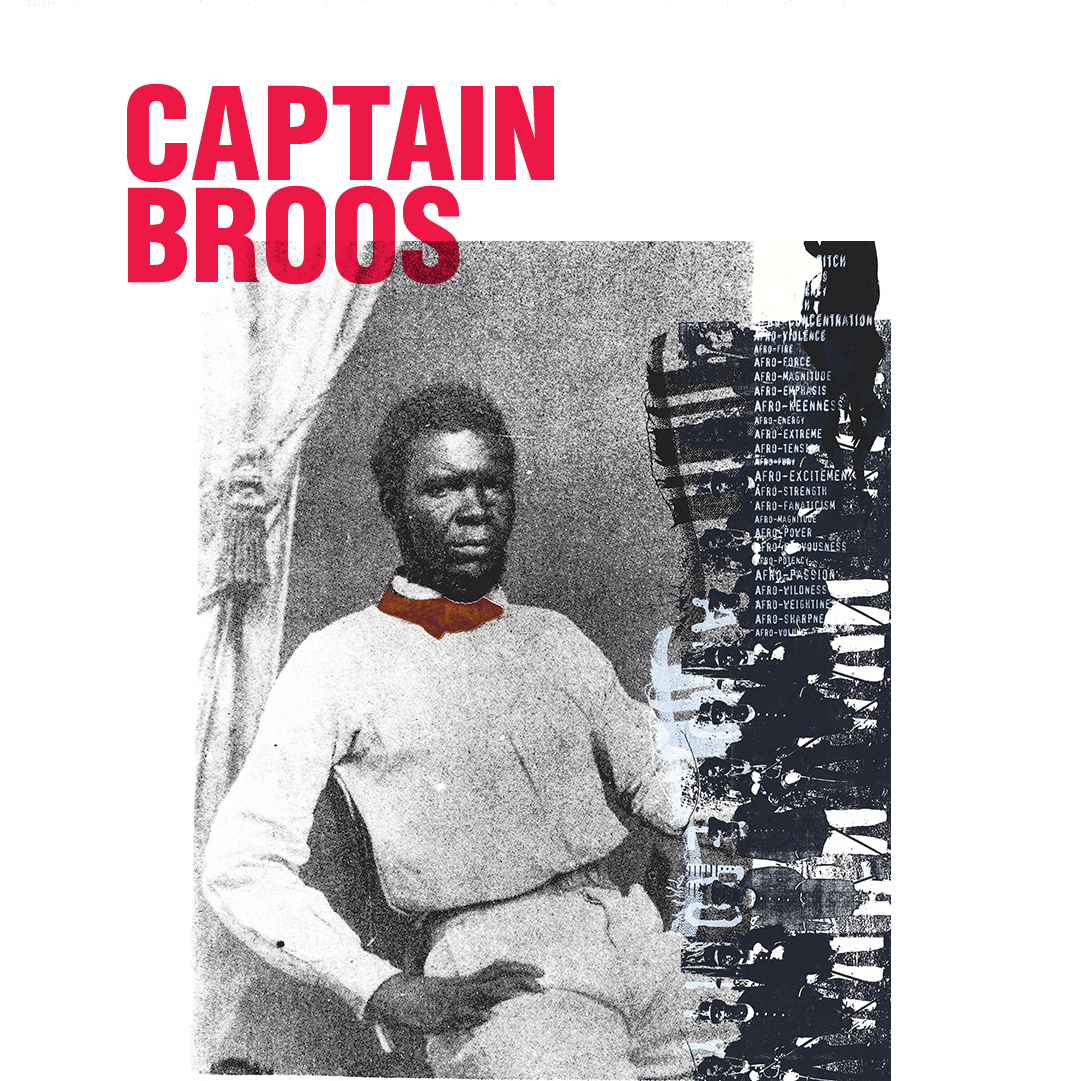|
Captain Broos (1821 - 1880) was a freedom fighter who resisted the oppression of the colonial government. Alongside his brother Kaliko, Broos was forced to work on a plantation. Tired of the exploitation on the plantations, they fled into the forests of Suriname. They joined forces with the Maroons who had been living in the swamps of Surnau Creek since 1740. Their group became known as the Brooskampers.
The Brooskampers lived far away from the plantations but still fought against the colonists by attacking the plantations. The colonial government organized search parties to drive away the Brooskampers. They continued these searches until just before the abolition of slavery, hoping to force the Brooskampers to return to the plantations. During these searches, they often burned down entire villages. After Emancipation in 1863, amnesty was granted to Broos and his group. Broos requested a piece of land on behalf of the Brooskampers. After consultations with the governor, they were given a piece of land from Rorac plantation. The legacy of the group lives on in their descendants, known by surnames such as Babel, Landveld, Meiland, and Deekman. |
Openingstijden/Opening TimesWoensdag/Wednesday 11.00 - 17.00 uur
Donderdag/Thursday 11.00 - 17.00 uur Vrijdag/Friday 11.00 - 17.00 uur Zaterdag/Saturday 11.00 - 17.00 uur Onze nieuwe locatie in Amsterdam Zuidoost is geopend. Neem contact op via de pagina contact voor rondleidingen buiten het programma. We moved to South East Amsterdam. Contact us via the page contact for tours outside our program. |
(Rolstoel)toegankelijkheid/Accessibility
Momenteel beschikt The Black Archives niet over een speciale ingang en lift voor personen met een fysieke beperking en voor rolstoelgebruikers.
At this moment, The Black Archives does not have a special entrance or lift for person of disability. |


